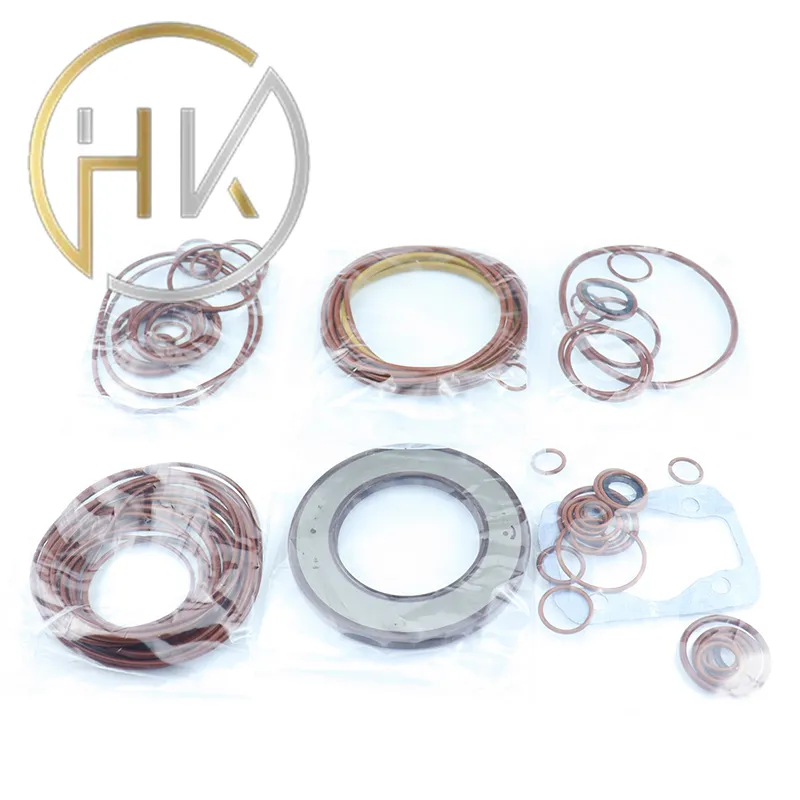Samh . 06, 2024 16:13 Back to list
Rear Wheel Hub Seal Maintenance and Replacement Guide for Optimal Performance
Understanding the Importance of Rear Hub Seals in Vehicle Maintenance
When it comes to vehicle maintenance, enthusiasts and ordinary drivers alike often focus on the engine, brakes, and tires. However, an equally important component that deserves attention is the rear hub seal. This seemingly minor part serves a critical function in the overall operation of a vehicle, particularly in ensuring the longevity and reliability of the rear axle assembly.
What is a Rear Hub Seal?
A rear hub seal is designed to keep lubricants contained within the rear axle while preventing outside contaminants such as dirt, water, and debris from entering the assembly. It acts as a barrier that ensures the proper functioning of various components, including bearings and differential gears, which are crucial for the vehicle's performance.
Importance of Rear Hub Seals
The rear hub seal plays several vital roles
1. Lubrication Retention The rear hub seal helps to retain the gear oil or grease, essential for lubricating moving parts within the rear axle. Proper lubrication reduces friction and wear, which can lead to premature failure of components.
2. Contaminant Protection By keeping external contaminants at bay, the rear hub seal functions as a protective barrier. Dirt, moisture, and debris can significantly affect the performance of the axle and lead to costly repairs if they penetrate the assembly.
3. Heat Dissipation Lubricants also assist in dissipating heat generated by friction during operation. A proper seal ensures that these lubricants do not leak out, maintaining optimal temperatures and preventing overheating of critical components.
4. Safety Assurance A compromised rear hub seal can lead to significant safety issues. If lubricants leak, internal components may run dry, increasing the risk of failure while driving. This can lead to serious accidents, making the integrity of the hub seal paramount for overall vehicle safety.
Signs of a Failing Rear Hub Seal
rear hub seal

Detecting issues with the rear hub seal early can prevent major mechanical failures and save on costly repairs. Here are some common signs that the rear hub seal may be failing
1. Visible Leaks Puddles of oil or grease near the rear wheels can indicate a failing seal. If oil seeps out, it can contaminate the braking system or other components, leading to extensive damage.
2. Unusual Noises If you hear grinding or whining noises coming from the rear axle, it may suggest inadequate lubrication due to a seal failure. This noise indicates that bearings are not sufficiently lubricated, causing them to wear out prematurely.
3. Decreased Performance A compromised hub seal may lead to decreased performance in handling and braking. If the vehicle feels unstable, it’s crucial to have it inspected immediately.
4. Frequent Fluid Checks If you find yourself frequently checking and refilling the lubricant in the rear axle, it may be a sign that the hub seal is not functioning correctly, allowing the fluid to escape.
Maintenance and Replacement
Regular vehicle maintenance should include an inspection of the rear hub seals. Mechanics should check for signs of wear, cracks, or deformation. Depending on the vehicle’s age and mileage, replacing the rear hub seal may be necessary.
When replacing a rear hub seal, it's important to choose a high-quality component from a reputable manufacturer. This ensures that the seal will withstand the operational demands of the vehicle and provide effective protection over time.
Conclusion
While often overlooked, the rear hub seal is a critical component of vehicle maintenance. Understanding its role in lubrication retention, contaminant protection, and overall safety is essential for any vehicle owner. Regular inspections and prompt attention to any signs of failure can prevent costly repairs and ensure that your vehicle operates safely and efficiently. By prioritizing the maintenance of rear hub seals, drivers can significantly enhance the longevity and reliability of their vehicles.
-
Unlocking the Potential of Hydraulic Systems with Essential Sealing Solutions
NewsAug.06,2025
-
Unleash the Power of Your Hydraulic Systems with Our Premium Seal Kits
NewsAug.06,2025
-
Specialized Hydraulic Seal Kits for Breakers, Pistons, and Presses
NewsAug.06,2025
-
Revitalize Hydraulic Systems with Premium Repair and Seal Kits
NewsAug.06,2025
-
Fortify Your Cylinders with Premium Sealing Solutions
NewsAug.06,2025
-
Elevate Hydraulic System Reliability with Specialized Seal Kits
NewsAug.06,2025
-
TCN Oil Seal Metal Ring Reinforcement for Heavy Machinery
NewsJul.25,2025
Products categories
















